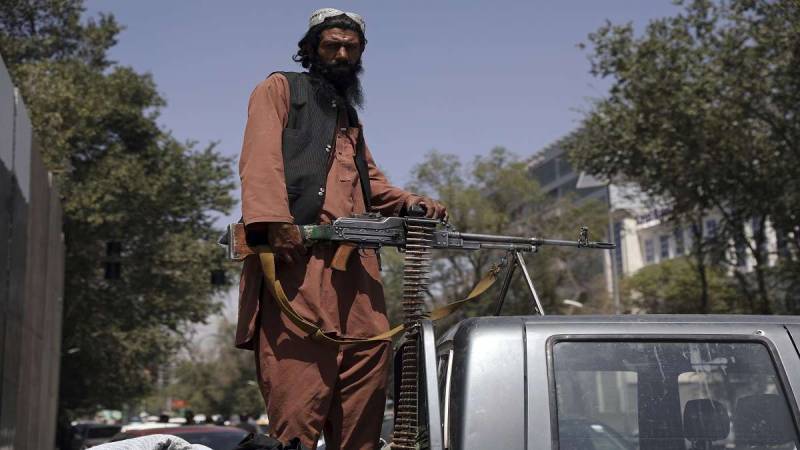
The escalating terrorist violence being carried out by the Tehreek-e-Taliban Pakistan (TTP) is becoming a major irritant for the already strained relations between Pakistan and the Taliban-led government in Afghanistan. A recent incident in Chitral serves as a stark example of this growing problem, where a substantial contingent of well-armed TTP militants crossed into border villages in Lower Chitral. According to media reports, these terrorists launched a brazen attack on two security checkpoints, leading to the tragic loss of four security personnel and several others sustaining injuries.
Following this attack, the Inter-Services Public Relations (ISPR) issued a statement indicating the deployment of additional troops to the Drosh area, aimed at deterring any potential acts of violence in the upcoming days. However, despite these security measures, the aftermath of this incident has instilled a pervasive sense of fear and terror among the local population of Chitral.
Chitral, historically a bastion of tranquility in a region where almost every part of the Khyber Pakhtunkhwa province has been plagued by terrorist attacks, now finds itself confronted with the harsh reality that it has become a target for such acts of terror. The peace-loving people of Chitral have come to realise that they could unwittingly become pawns in the ongoing conflict originating from across the border.
In 2021, when the Afghan Taliban regained control in Afghanistan, many government officials, retired military officers, and staunch clerics in Pakistan were jubilant
Those who are not aware of the geography of Chitral, it shares a porous border with the Afghan provinces of Kunar and Nuristan, rendering it a strategically sensitive area. These provinces served as major hideouts for the Taliban during previous military operations in northern Pakistan. The picturesque Chitral valley is also inhabited by Ismailis and is home to the Kalash community, a polytheistic people who claim descent from Alexander the Great and have maintained separate cultural traditions within the predominantly Muslim population.
Both of these communities are gripped by a sense of insecurity, given the TTP's determined pursuit of establishing a Sharia-compliant state. Furthermore, the utilization of high-end equipment and NATO-standard weapons by TTP militants during the Chitral assault has raised significant concerns.
It is worth noting that in 2021, when the Afghan Taliban regained control in Afghanistan, many government officials, retired military officers, and staunch clerics in Pakistan were jubilant. However, the contentious relationship between Pakistan and Afghanistan since then should serve as a reminder that the Afghan Taliban will prioritise their own national interests, and this lesson should not be overlooked.
In Pakistan, there was a misguided expectation that, given the significant support provided by Pakistan in facilitating the rise of the Taliban to power, the Afghan Taliban would refrain from permitting their territory to be used against Pakistan and would respect the status of the Durand Line, which is the border between Pakistan and Afghanistan. However, the Afghan Taliban took a different course of action, disregarding Pakistan's concerns, particularly regarding the presence of the Tehreek-e-Taliban Pakistan (TTP) using Afghan territory as a base for attacks against Pakistan.
It is improbable that they would take substantial action against the TTP, as they have been using the group as a bargaining chip against Pakistan. It appears that they may seek a like-minded actor such as the TTP to exert influence over significant regions of Pakistan
The escalating insurgency in Pakistan prompts numerous questions regarding Pakistan's previous shortcomings in dealing with the TTP (Tehreek-e-Taliban Pakistan). While the current military leadership has reevaluated this policy and rejected the appeasement approach adopted by the previous government led by Imran Khan, the repercussions are evident, with several high-profile TTP captives having been released both within Pakistan and in Afghanistan.
It is imperative for Pakistan to adopt a more assertive approach toward the Taliban-led government in Afghanistan. While maintaining open diplomatic channels with Afghanistan is essential, the expectation that the Afghan Taliban will assist in resolving the TTP issue may no longer be realistic. It is improbable that they would take substantial action against the TTP, as they have been using the group as a bargaining chip against Pakistan. It appears that they may seek a like-minded actor such as the TTP to exert influence over significant regions of Pakistan.
On the lower end of the spectrum, Pakistan could attempt to influence the Afghan Taliban's internal divisions by marginalizing Taliban leadership that supports the TTP. Strengthening border security to prevent the spillover of violence and the movement of militants across borders is also an urgent necessity.
In conclusion, the TTP's escalating activities in the border region pose a formidable challenge to Pakistan's security and regional stability. Addressing this issue requires a comprehensive, multifaceted approach, combining robust security measures with diplomatic efforts and international cooperation. Political stability in Pakistan is equally crucial to convey a resounding message that, when it concerns the security of the nation, every political party stands united.
In order to tackle this multifaceted and persistent challenge, the government must continue to implement sustained and strategic efforts.

